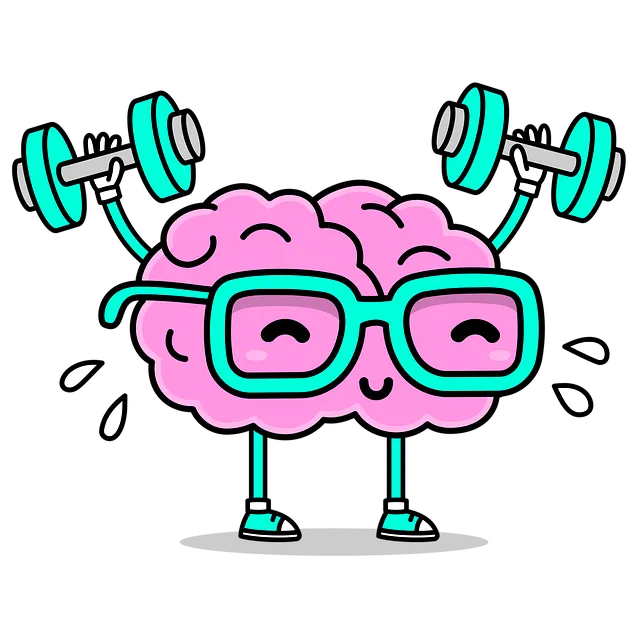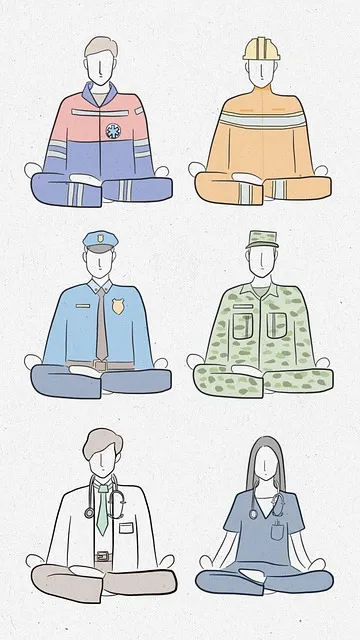Louisville Kaiser Permanente's holistic approach to mental health coverage recognizes the power of social skills in supporting overall well-being, especially for managing stress and long-term conditions. Their programs, like Social Skills Training, focus on conflict resolution, cultural competency, and community outreach, empowering individuals to build supportive networks. By integrating these strategies into daily life through activities like journaling and guided exercises, Kaiser Permanente helps clients develop empathy, improve communication, and reduce social isolation, ultimately enhancing mental health outcomes.
Social skills training is a powerful tool for individuals managing mental health conditions, offering a unique path to improved well-being. This article explores the intricate link between social interactions and mental health, with a specific focus on how Louisville Kaiser Permanente’s mental health coverage facilitates access to such programs. We’ll uncover essential components of effective training and provide practical tips for integrating these skills into daily life, demonstrating the transformative potential in a supportive environment.
- Understanding the Connection Between Social Skills and Mental Health
- The Role of Louisville Kaiser Permanente Mental Health Coverage
- Key Components of Effective Social Skills Training
- Practical Tips for Integrating Social Skills Training into Daily Life
Understanding the Connection Between Social Skills and Mental Health

The connection between social skills and mental health is a crucial aspect often overlooked in overall well-being. Louisville Kaiser Permanente mental health coverage recognizes that an individual’s ability to interact and connect with others significantly impacts their mental health trajectory. People with robust social skills tend to have stronger support networks, which act as a buffer against stress, anxiety, and depression. This interconnectedness is vital, especially for individuals managing long-term conditions or recovering from traumatic events.
Social skills training plays a pivotal role in enhancing public awareness campaigns related to mental health. By incorporating techniques like conflict resolution and cultural competency training, healthcare providers can empower individuals with the tools to navigate social interactions more effectively. This, in turn, fosters better mental health outcomes, as it enables people to build meaningful relationships, communicate their needs, and seek support when required. Such initiatives contribute to a holistic understanding of mental health care, moving beyond traditional therapeutic settings into the realm of everyday social connections.
The Role of Louisville Kaiser Permanente Mental Health Coverage

Louisville Kaiser Permanente’s mental health coverage plays a pivotal role in empowering individuals with access to comprehensive care. Their tailored programs recognize that social skills are integral to overall mental wellness. This healthcare provider offers specialized services designed to enhance communication, interpersonal relationships, and emotional regulation—crucial aspects often targeted in therapy sessions.
The Mental Wellness Journaling Exercise Guidance, for instance, encourages patients to reflect on their thoughts and emotions, fostering self-awareness. Additionally, community outreach programs aim to connect individuals with support networks, promoting a sense of belonging and enhancing mood management. These initiatives highlight Kaiser Permanente’s commitment to not just treating symptoms but also implementing holistic strategies, like the Community Outreach Program Implementation, to improve long-term mental health outcomes.
Key Components of Effective Social Skills Training

Social Skills Training is an essential component of holistic mental health care, particularly tailored to individuals under Louisville Kaiser Permanente mental health coverage. An effective program focuses on several key components. Firstly, Empathy Building Strategies are central, teaching participants to understand and share the feelings of others. This fosters a deeper connection and enhances interpersonal interactions, reducing social isolation often associated with mental health conditions.
Secondly, Communication Strategies are vital for expressing oneself clearly and assertively while listening actively to others. These skills enable individuals to navigate social situations more confidently, promoting positive relationships. Additionally, Community Outreach Program Implementation plays a crucial role by providing real-world practice in diverse settings, reinforcing learned skills, and building a support network beyond the training environment.
Practical Tips for Integrating Social Skills Training into Daily Life

Integrating social skills training into daily life can be transformative for individuals managing mental health conditions. Start by setting small, achievable goals that align with your Louisville Kaiser Permanente mental health coverage and personal needs. For example, if engaging in conversations feels daunting, begin with initiating a brief interaction with a cashier or colleague each day. This gradual approach, known as exposure therapy, can help build confidence and reduce anxiety over time.
Consider incorporating these practices into risk management planning for mental health professionals to ensure ongoing growth. Regularly practice active listening and empathetic communication in social settings or through role-playing exercises with trusted friends or support groups. Additionally, focus on developing coping strategies for high-stress situations using techniques like deep breathing or mindfulness meditation. Incorporating these tools into your mood management routine can enhance overall well-being and make social interactions more manageable.
Social skills training plays a pivotal role in managing mental health conditions, as it equips individuals with the tools to navigate social interactions confidently. The Louisville Kaiser Permanente mental health coverage recognizes this and offers comprehensive support for such initiatives. By focusing on key components like communication, empathy, and emotional regulation, these programs can significantly enhance daily life. Integrating practical tips into daily routines allows individuals to build resilience and foster meaningful connections, ultimately improving overall well-being.






